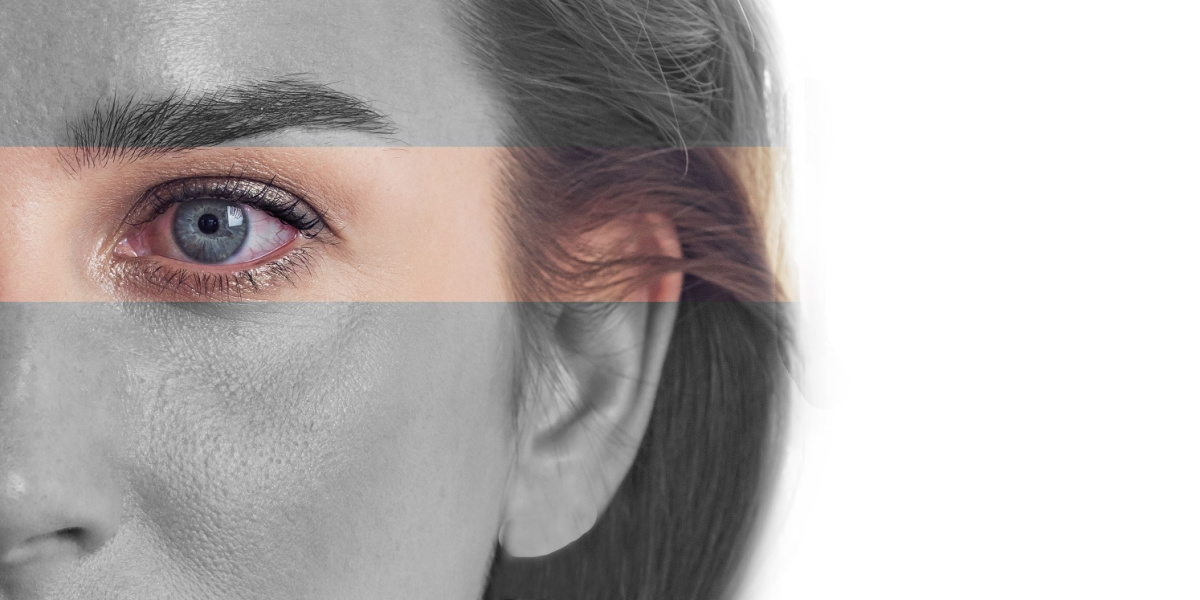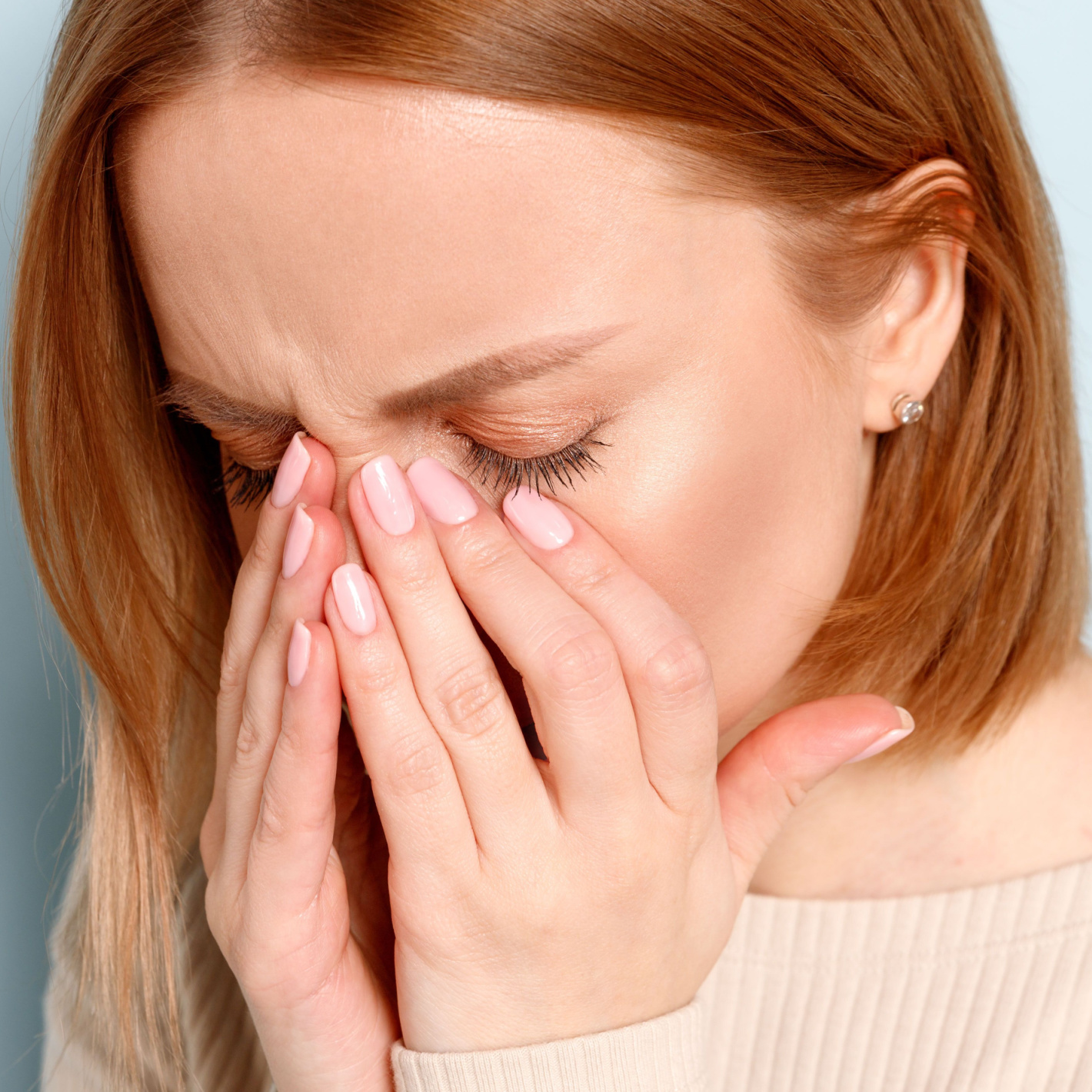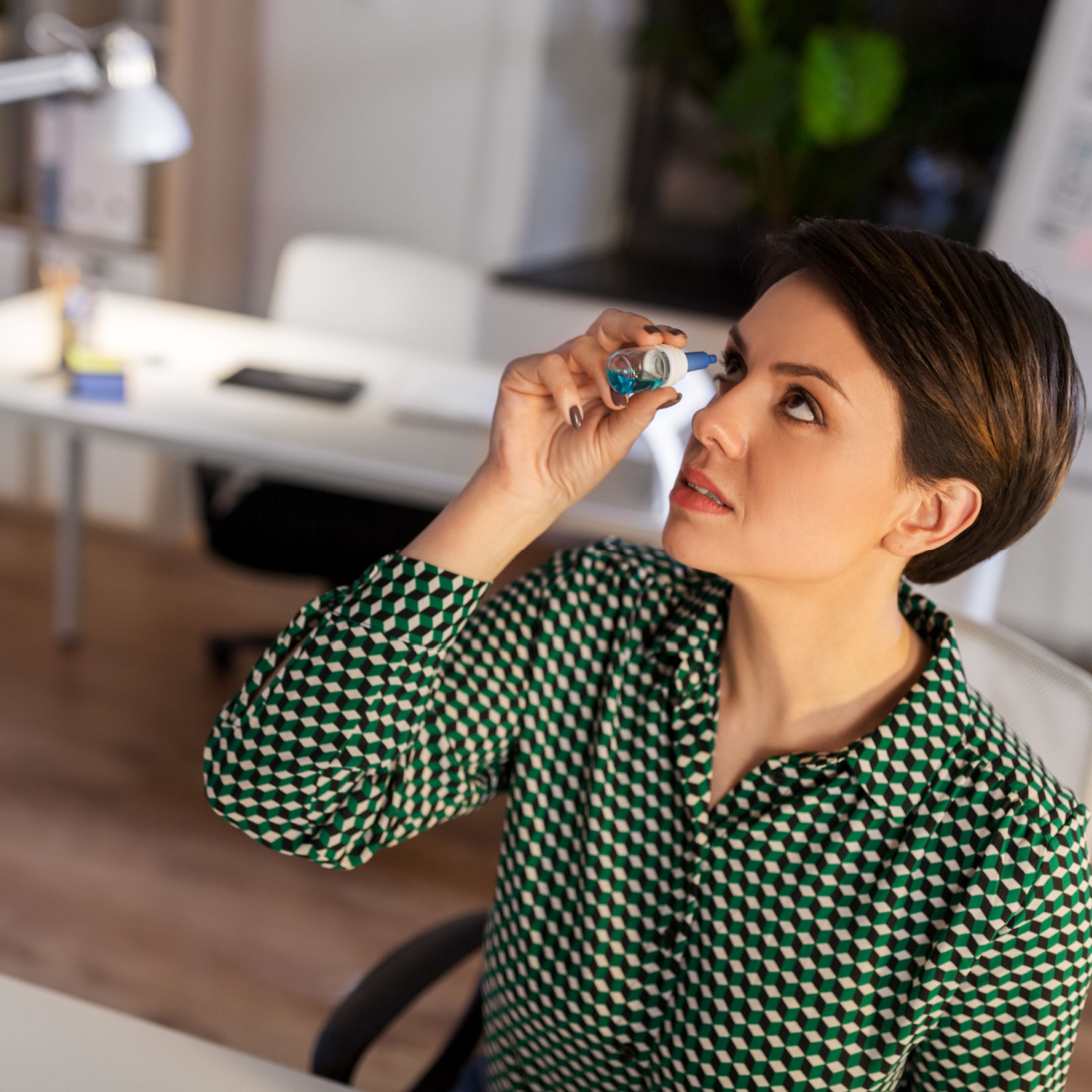
Can dry eyes affect vision?
Research by Théa UK found that one in three people have been affected by dry eye syndrome at some point in their lives. According to a study by the University of Southampton published in the British Medical Journal, the condition affects women more than men and is more common the older you get.

What is dry eye syndrome?
Dry eye syndrome occurs when your eyes don’t produce enough tears, or the tears you’re producing aren’t of sufficient quality. Your tears lubricate the delicate surface of your eyes to protect them and keep your vision sharp and your eyes comfortable.
Can dry eyes affect vision?
If your tears aren’t working as they should and you develop dry eye syndrome, it’s likely you’ll notice a change in your vision. Typical symptoms include:
– Blurred or wavy vision that comes and goes
– Sensitivity to light
– Itchy eyes
– Red eyes
– A gritty feeling on the surface of your eyes
– A burning or stinging sensation around your eyes
– Watery eyes


What causes dry eye syndrome?
You’re more likely to develop dry eyes as you get older, but there are other factors that can also play a part, including:
– Other eye conditions, such as blepharitis (inflammation of the eyelids)
– Too much screen time
– Not drinking enough water
– Medicated eye drops used to treat other conditions, such as glaucoma
– High levels of pollution in the air
– Cigarette smoke
– Dry environments, such as air conditioning or centrally heated rooms
How to treat dry eye syndrome at home
There is no cure for dry eye syndrome but there is plenty you can do to alleviate your symptoms. It’s especially important to be more attentive in the winter months because central heating and wintry weather make the air drier, increasing your risk of dry eye syndrome or worsening existing symptoms.
If you work at a computer, take regular breaks. Also, make a point of blinking more often — we tend to blink less when staring at a screen and this can lead to drier eyes, as the moisture from your tears doesn’t get spread across the surface as often.
If you work in air conditioned or centrally heated environments, consider investing in a humidifier to add moisture back into the air. Consuming enough omega-3 fatty acids has also been suggested to help reduce the effects of dry eye.
If you’re out in the wind or the sun, wear sunglasses to deflect some of it and prevent your eyes from drying out any further.
If your dry eyes are caused by blepharitis, take care of your eyelid margins, and ensure they’re kept clean to get some respite.
And finally, a warm compress or eye mask for dry eyes that is placed on your eyes for 10 minutes daily can help alleviate symptoms by stimulating your Meibomian glands to unblock and secrete oil, which forms an important part of your tear film.

Further treatment for dry eye
If your dry eye syndrome symptoms are persistent, you can also use artificial tears or prescription eye drops to help keep the surface of the eye lubricated and hydrated, and help restore the natural balance to your tears.
Our long standing optometrist Lynn McLaren is now a qualified Independent Prescriber, which means she can make a diagnosis and directly issue NHS prescription eye drops or other medication to alleviate your symptoms, saving you a trip to the GP.
If you’re concerned about dry eyes, contact our highly experienced opticians in Glasgow or Ayrshire for some friendly advice and help to get some respite from your dry eye symptoms.


